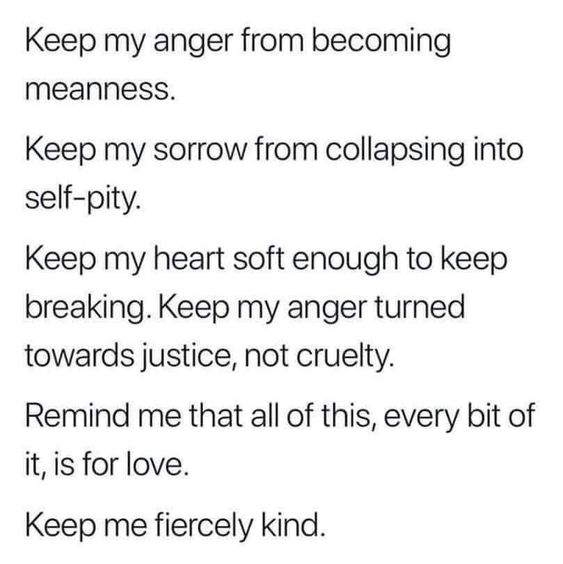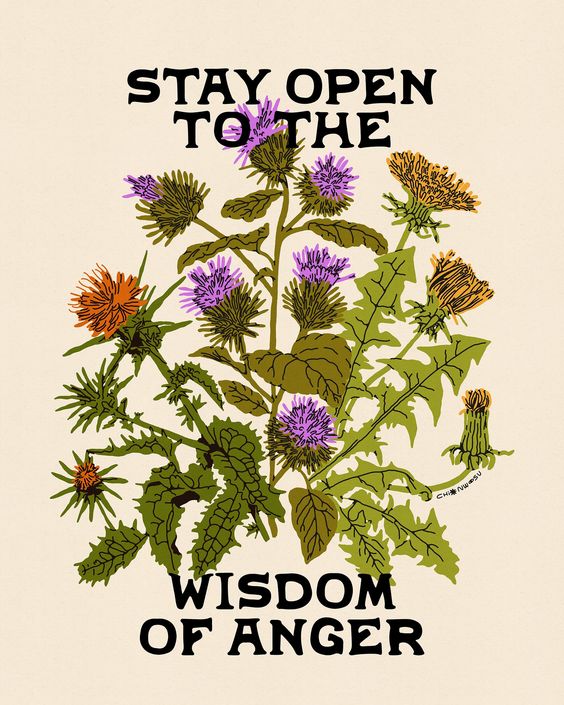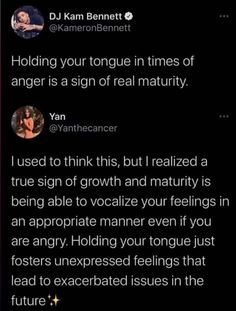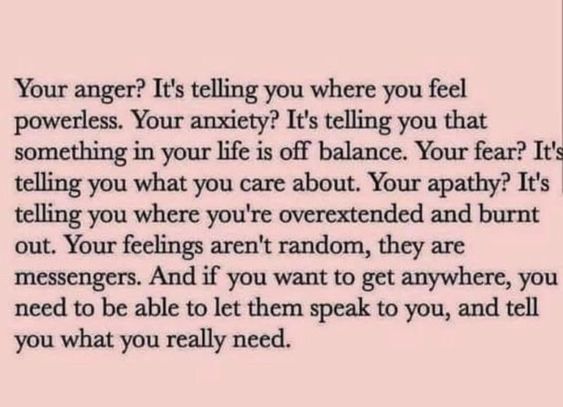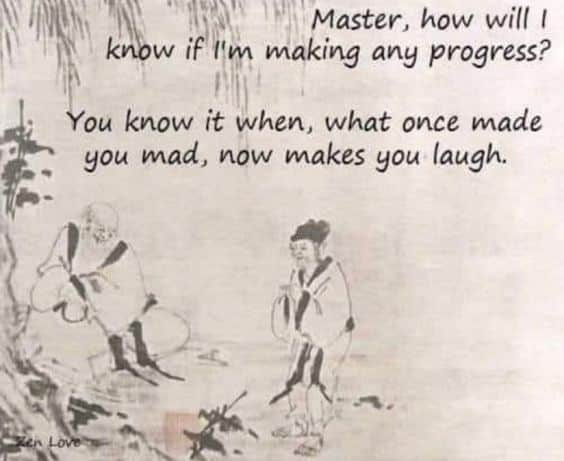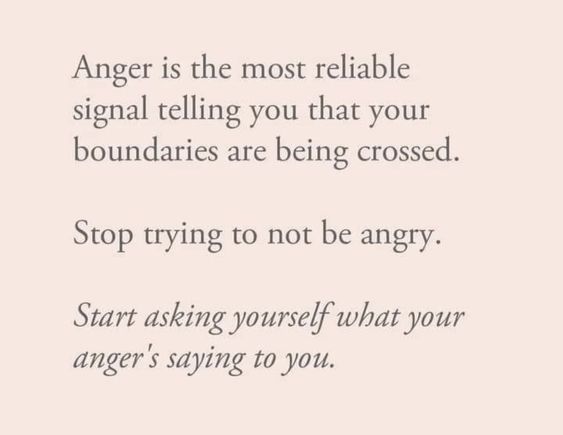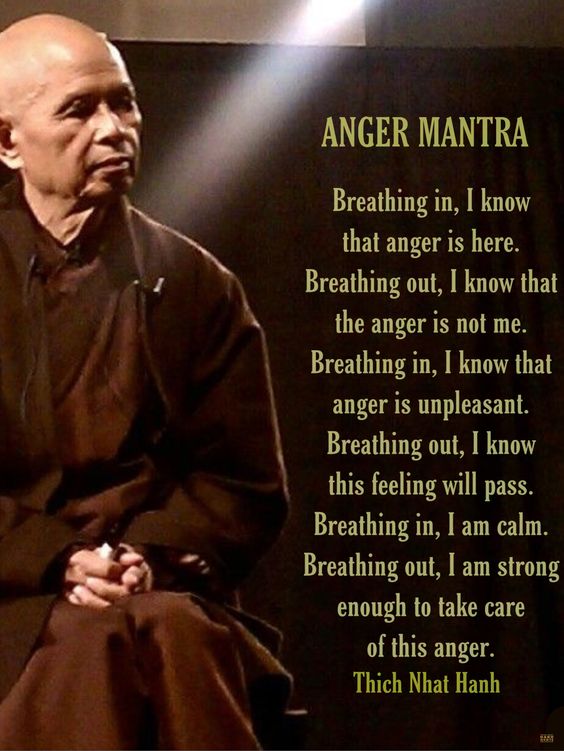“I asked you if I could take some books from the house to have in my dorm room. You reached up, pulled on my neck, and kissed me on the top of the head. I pulled away. ‘Maybe the books will protect you,’ you said. ‘Take all the books you need. And don’t fight when you’re angry. Think when you’re angry. Write when you’re angry. Read when you’re angry. Don’t let those people shoot you out of the sky while I’m gone.’ I rolled my eyes and sucked hard on my teeth as you walked to the end of the line. ‘Don’t be good,’ you said across the space between us. ‘Be perfect. Be fantastic.'”
Kiese Laymon, Heavy (Page 119)
“Anger is easy. It’s easier to be angry than hurt. Being angry is active, it’s aggressive, it’s distracting. Hurt is acceptance. It’s something you sit with. It’s something you wish you didn’t feel, but you do. It’s something you wish hadn’t happened, but did. When Marcus Aurelius said it wasn’t manly to get angry, perhaps this is what he was saying. That the childish thing is to yell about and fight about and reject the hurt that you feel. The adult thing is to try to understand it, to come to terms with it, to understand that—like all things—it will pass, and that if you’re patient and have perspective, it will help. The responsible thing is to explore the roots of an emotion, to ask why you’re feeling a particular way, why something was so triggering or painful and to try to deal with that.”
Ryan Holiday
“Misery has no outer cause; the cause is inner. You go on throwing the responsibility outside yourself, but that is just an excuse. Yes, misery is triggered from the outside, but the outside does not create it. When somebody insults you, the insult comes from the outside, but the anger is inside you. The anger is not caused by the insult, it is not the effect of the insult, If there were no anger energy in you, the insult would have remained impotent. It would have simply passed, and you would not have been disturbed by it.”
Osho, Everyday Osho (Page 175)
“When you hate someone,
be certain you’re hating them,
not the fabricated version of them
you’ve created in your head.”
Cole Schafer (January Black), One Minute, Please? (Page 29)
“There is nothing manly in being angry, but a gentle calm is both more human and therefore more virile. It is the gentle who have strength, sinew, and courage—not the indignant and complaining. The closer to control of emotion, the closer to power. Anger is as much a sign of weakness as is pain.”
Marcus Aurelius, Meditations (Page 111)
“It is healthy to be angry, and anger can also show us important aspects of who we are and what we care about. For example, anger shows us where our boundaries are. Anger also helps us identify what we find to be unjust.”
Brianna Wiest, The Mountain Is You (Page 73)
“You are angry. Let the feeling settle from within, and think about it. Was it triggered by something seemingly trivial or petty? That is a sure sign that something or someone else is behind it. Perhaps a more uncomfortable emotion is at the source—such as envy or paranoia. You need to look at this square in the eye. Dig below any trigger points to see where they started.”
Robert Greene, The Daily Laws (Page 374)
“If you come across any special trait of meanness or stupidity… you must be careful not to let it annoy or distress you, but to look upon it merely as an addition to your knowledge—a new fact to be considered in studying the character of humanity. Your attitude towards it will be that of the mineralogist who stumbles upon a very characteristic specimen of a mineral.”
Arthur Schopenhauer, via The Daily Laws (Page 368)
“No one can harm you. ‘If someone succeeds in provoking you,’ Epictetus said, ‘realize that your mind is complicit in the provocation.’ He meant that whatever other people do and say is on them. Whatever your reaction is to what other people do and say—that’s on you. No one can make you angry, only you have that power. Someone can certainly say something offensive or stupid or mean, but no one can make you upset—that’s a choice.”
Ryan Holiday
